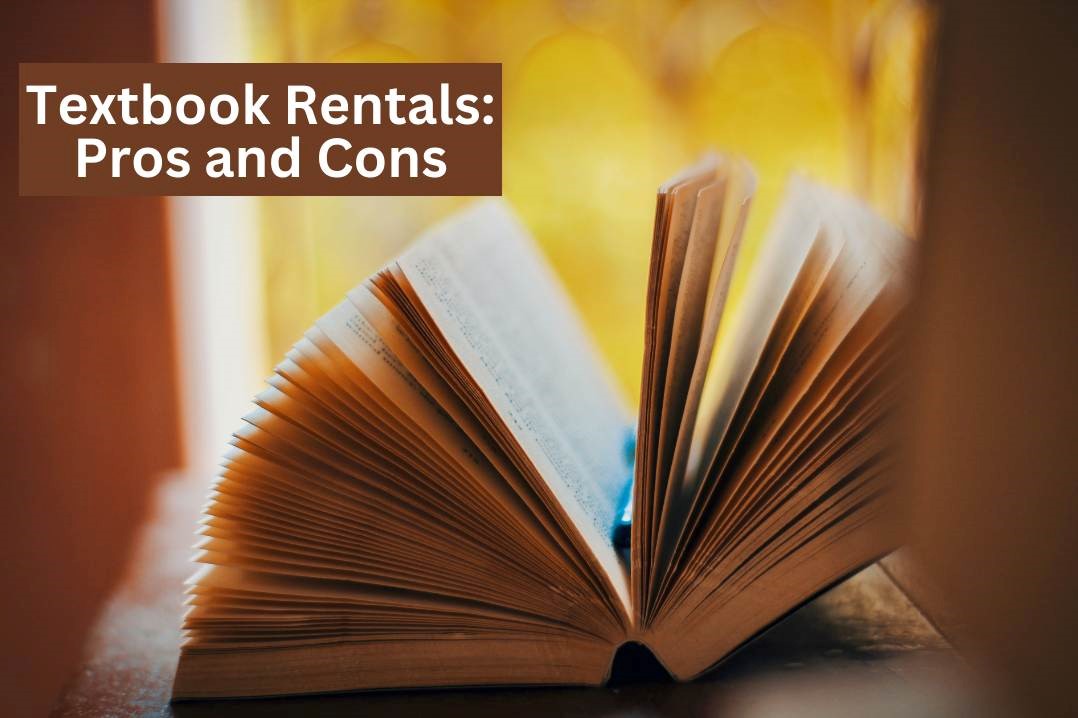When it comes to studying economics, having the right textbooks can make all the difference. With so many options available, it can be overwhelming for students to choose the most suitable ones for their needs. That's why we have compiled a comprehensive guide outlining the most popular economics textbooks that students should consider.
Economics, a field often heard of but not widely understood, focuses on the production, distribution, and consumption of goods and services. It brims with theoretical and mathematical frameworks that economists have studied for centuries.
Great textbooks that effectively condense centuries of economic concepts into engaging content can be challenging to create. However, some textbooks meet this challenge admirably, offering excellent introductions to the foundational concepts of economic theory.
At windsorbooks.com, we have compiled a list of the best economics textbooks, covering both macroeconomics and microeconomics, providing a comprehensive resource for learners at all levels.
Principles of Economics By N. Gregory Mankiw
"Principles of Economics" by N. Gregory Mankiw is a hallmark in the world of economics education. This widely renowned textbook has left an indelible mark on students and educators alike for several compelling reasons. Mankiw's ability to seamlessly navigate both microeconomics and macroeconomics within a single text is a testament to his expertise in the field.
One of the standout features of this textbook is Mankiw's writing style. It is characterized by its clarity and conciseness. Economics can be a complex subject, with intricate theories and abstract concepts. However, Mankiw's talent lies in his capacity to elucidate these complexities in a straightforward and accessible manner. This makes the content not only understandable but also enjoyable for students at all levels of familiarity with economics.
Furthermore, "Principles of Economics" offers a well-rounded foundation. It doesn't merely skim the surface of economic principles; it delves deep into the subject matter, ensuring that students acquire a comprehensive understanding of key concepts. Whether you are a novice seeking to grasp the fundamentals or an advanced learner looking to refine your knowledge, this textbook caters to a broad spectrum of learners.
In addition to its textual content, Mankiw's book includes practical examples, case studies, and exercises that encourage critical thinking and real-world application of economic theories. This blend of theory and application makes the learning experience enriching and relevant.
Key Takeaways:
- N. Gregory Mankiw's "Principles of Economics" serves as fundamental textbook introducing students to core economic principles.
- It covers a wide range of economic topics, including supply and demand, market structures, fiscal policy, and more, making it an excellent choice for a comprehensive understanding of economics.
Principles of Microeconomics By N. Gregory Mankiw
"Principles of Microeconomics" by N. Gregory Mankiw is a standout choice for individuals seeking an in-depth understanding of microeconomics. This specialized textbook is a testament to Mankiw's expertise in the field and his commitment to simplifying complex economic concepts for students of all backgrounds.
One of the most remarkable features of this textbook is its focus on the intricacies of individual economic agents' behavior. Microeconomics, as a discipline, delves into the behavior of individuals, firms, and markets at the granular level. Mankiw's book excels in dissecting these behaviors, offering students valuable insights into how economic decisions are made on a small scale. Whether it's analyzing consumer choices, firm strategies, or market dynamics, this textbook leaves no stone unturned.
Market structures are another critical aspect explored in Mankiw's "Principles of Microeconomics." This textbook provides a comprehensive examination of various market structures, from perfect competition to monopolies. Mankiw's ability to break down these complex structures into digestible components allows students to grasp the nuances of how different markets operate. This knowledge is invaluable for those looking to understand the dynamics of real-world industries and businesses.
Mankiw's expertise in simplifying complex microeconomic concepts is a hallmark of this textbook. He uses clear and concise language, supported by real-world examples, to make these concepts accessible to all students. Whether you are a beginner trying to grasp the fundamentals of microeconomics or an advanced learner seeking to refine your knowledge, Mankiw's "Principles of Microeconomics" caters to your needs.
Key Takeaways:
- "Principles of Microeconomics" by N. Gregory Mankiw focuses specifically on microeconomic principles.
- It delves into the study of individual economic agents, market behavior, and consumer choices, providing in-depth insights into microeconomics.
Principles of Economics By John B. Taylor
"Principles of Economics" by John B. Taylor stands out as a refreshing perspective on the subject. In this textbook, Taylor takes a unique approach by placing a strong emphasis on economic policies and their tangible impact on real-world scenarios. This focus equips students with invaluable insights into the practical application of economic principles, making it an indispensable resource for those seeking a comprehensive understanding of economics within the context of public policy.
One of the remarkable features of Taylor's textbook is his adept use of real-world examples and case studies. By integrating these into the curriculum, Taylor provides students with a holistic view of economics. These examples bridge the gap between theory and reality, helping learners connect abstract economic concepts to concrete situations they may encounter in the world. This approach not only enhances comprehension but also fosters a deeper appreciation for the subject matter.
Moreover, Taylor's keen insights into the impact of economic policies make his textbook particularly relevant in today's world. Understanding how economic principles translate into public policy decisions is crucial for students aspiring to become informed and responsible citizens. Taylor's clear and concise explanations demystify the often complex interplay between economics and policy, empowering students to engage in meaningful discussions and make informed judgments about real-world economic issues.
Key Takeaways:
- John B. Taylor's "Principles of Economics" emphasizes the importance of policy analysis in economics.
- This textbook explores topics such as inflation, unemployment, and monetary policy, offering a unique perspective on the subject.
Macroeconomics: Principles, Problems, and Policies By Stanley L. Brue, Campbell R. McConnell
"Macroeconomics: Principles, Problems, and Policies" authored by Stanley L. Brue and Campbell R. McConnell is a formidable resource for those seeking a comprehensive understanding of macroeconomics. This textbook distinguishes itself through its thorough exploration of economic issues and policies, rendering it an essential companion for students aiming to grasp the intricacies of the broader economic landscape.
One of the standout features of this textbook is its in-depth coverage of economic issues. Macroeconomics, as a discipline, deals with large-scale economic phenomena such as inflation, unemployment, and economic growth. Brue and McConnell leave no stone unturned in their examination of these issues, providing students with a profound insight into the macroeconomic challenges and opportunities faced by economies.
Moreover, the textbook's focus on economic policies is particularly noteworthy. In the real world, governments and policymakers grapple with making decisions that affect entire nations. "Macroeconomics: Principles, Problems, and Policies" sheds light on the intricacies of these policy decisions, enabling students to appreciate the nuances and consequences of economic policy-making. This knowledge is instrumental for those looking to engage in informed discussions on economic policies and their impact on society.
Brue and McConnell present a balanced and insightful perspective throughout the textbook. They navigate complex economic concepts with clarity and precision, ensuring that students of varying backgrounds can engage with the material effectively. This approach makes the content not only accessible but also engaging, fostering a deeper understanding of macroeconomics.
Key Takeaways:
- "Macroeconomics: Principles, Problems, and Policies" by Stanley L. Brue and Campbell R. McConnell is known for its approachability and real-world relevance.
- It provides a comprehensive view of macroeconomics, making it suitable for both students and those interested in understanding broader economic forces.
Microeconomics By David Besanko, Ronald R. Braeutigam
"Microeconomics" by David Besanko and Ronald R. Braeutigam is an exceptional and indispensable resource for individuals eager to immerse themselves in the realm of microeconomic theory and its real-world applications. This textbook distinguishes itself by its ability to unravel intricate microeconomic concepts through the use of practical scenarios and real-world examples, making it an ideal choice for students who seek a profound understanding of microeconomics.
One of the most remarkable attributes of this textbook is its approach to simplifying complex microeconomic concepts. Microeconomics often involves abstract theories and intricate models, which can be challenging to comprehend. However, Besanko and Braeutigam's mastery of the subject shines through as they seamlessly translate these complexities into practical and understandable terms. By employing real-world examples, they bridge the gap between theory and reality, enabling students to see the direct applications of microeconomic principles in everyday life.
Furthermore, the authors' expertise in the field is evident throughout the textbook. Besanko and Braeutigam's comprehensive understanding of microeconomics is reflected in their meticulous explanations, ensuring that students receive a thorough and in-depth education in the subject matter. This level of expertise not only enhances the quality of the content but also instills confidence in students, knowing that they are learning from authoritative sources.
Key Takeaways:
- "Microeconomics" by David Besanko and Ronald R. Braeutigam is a comprehensive textbook that delves deep into microeconomic theory.
- It covers topics such as market structures, game theory, and consumer behavior, making it a valuable resource for microeconomics enthusiasts.
Benefits of Reading Economics Textbooks
Reading economics textbooks offers several significant benefits. Firstly, it equips individuals with a solid understanding of economic principles, theories, and concepts. This foundational knowledge is essential for making informed decisions in personal finance, business, and public policy. It helps individuals comprehend economic phenomena, such as market forces, inflation, and fiscal policies, which play a vital role in everyday life.
Secondly, economics textbooks promote critical thinking and analytical skills. They encourage readers to analyze economic issues, weigh trade-offs, and assess the impact of economic policies. This analytical mindset is valuable not only for academic and professional pursuits but also for making sound financial decisions and participating in informed discussions on economic matters. In essence, reading economics textbooks empowers individuals with both knowledge and critical thinking abilities, enhancing their economic literacy and decision-making capabilities.
Conclusion
In this comprehensive review, we have explored some of the most popular economics textbooks available today. Each of these textbooks offers a unique perspective on the field of economics, catering to a wide range of students and educators. Whether you are interested in microeconomics, macroeconomics, or the practical application of economic principles, there is a textbook on this list that will suit your needs.
Selecting the right economics textbook is a crucial step in your educational journey. Consider your specific interests and requirements, and choose a textbook that aligns with your goals. Remember that a well-chosen economics textbook can be a valuable companion in your quest to understand the intricacies of this fascinating field.
So, as you embark on your academic journey in economics, make an informed choice and let your chosen textbook be your guide to unlocking the world of economic principles and theories.
Looking for affordable textbooks? Visit windsorbooks.com, where you can find great deals on buying, selling, or renting textbooks by entering the ISBN. Save on your next textbook purchase or explore free college textbooks with open licenses.
FAQs
- What Makes a Good Economics Textbook?
A good economics textbook should provide clear explanations of economic concepts, offer practical examples, and present real-world applications. It should also be up-to-date with current economic theories and trends to ensure relevance.
- Are These Textbooks Suitable for Both Students and Professionals?
Yes, the recommended economics textbooks are suitable for both students and professionals. They cover a wide range of topics, from foundational principles to policy analysis, making them valuable resources for anyone interested in economics.
- How Do I Choose the Right Economics Textbook for My Needs?
To choose the right economics textbook, consider your specific interests within the field. If you're new to economics, a comprehensive textbook like "Principles of Economics By N. Gregory Mankiw" is a good starting point. If you have a particular interest in microeconomics or macroeconomics, select a textbook that aligns with that focus.
- Can I Find Additional Resources to Complement These Textbooks?
Yes, you can find additional resources such as online lectures, supplementary reading materials, and practice exercises to complement these textbooks. Many educational platforms offer free or paid resources to enhance your understanding of economics.
- Are Digital Versions of These Textbooks Available?
Yes, most of these textbooks are available in digital formats, such as e-books and online editions. Digital versions offer the convenience of portability and often include interactive features that can enhance your learning experience. You can typically find digital versions on popular e-book platforms and university websites.









